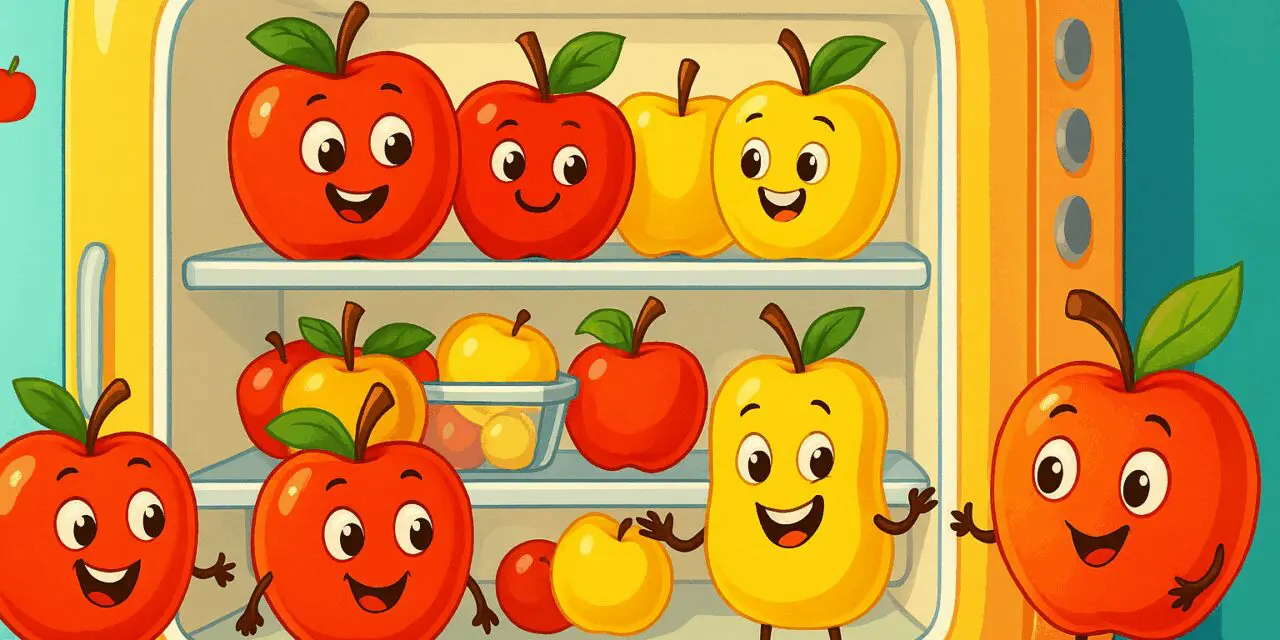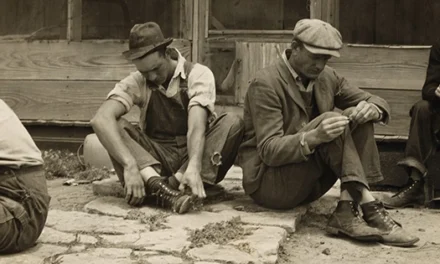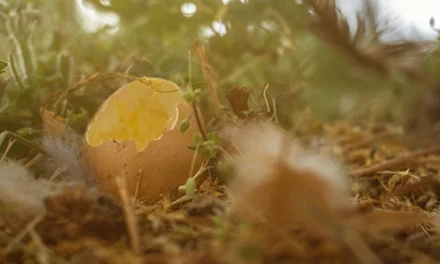When stored in the fridge, apples can last up to six weeks while retaining their crispness. This article discusses the factors that influence their shelf life and offers tips on how long do apples last in the fridge and how to keep them fresh for as long as possible.
Key Takeaways
- Store apples in the fridge for up to six weeks to keep them fresh and crisp.
- Use proper storage techniques like crisper drawers and vacuum sealing to maximize apple longevity.
- Regularly inspect apples for spoilage and separate damaged ones to prevent the rest from spoiling.
Fridge Storage Duration for Apples
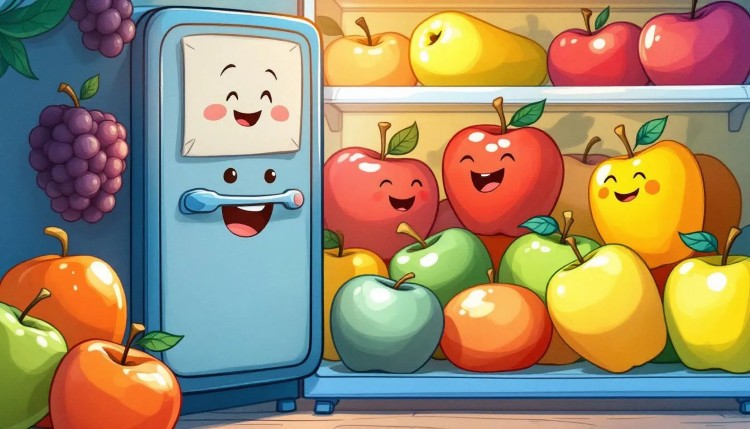
Apples can last up to six weeks when stored in the fridge, making it one of the most effective methods for keeping them fresh. The cool environment helps retain their crispness while slowing down the ripening process, which is essential for prolonging their shelf life. But how long apples last in the fridge also depends on several factors including the harvest time, storage conditions, and whether they have been washed, cut, or cooked.
Sort and discard any bruised or damaged apples before storing them. These imperfections can accelerate spoilage and affect other apples stored nearby. Regularly inspect apples for signs of spoilage such as bruises or soft spots to keep them fresh. Fresh apples can be identified by their firm and bright skin. They also have a pleasant smell.
If your room temperature is warm, storing apples in the refrigerator is the ideal choice. The decision of where to store apples ultimately depends on your preference, available storage options, and the desired texture and flavor. Stick to these guidelines to keep your apples fresh for weeks.
Best Practices for Storing Apples in the Fridge
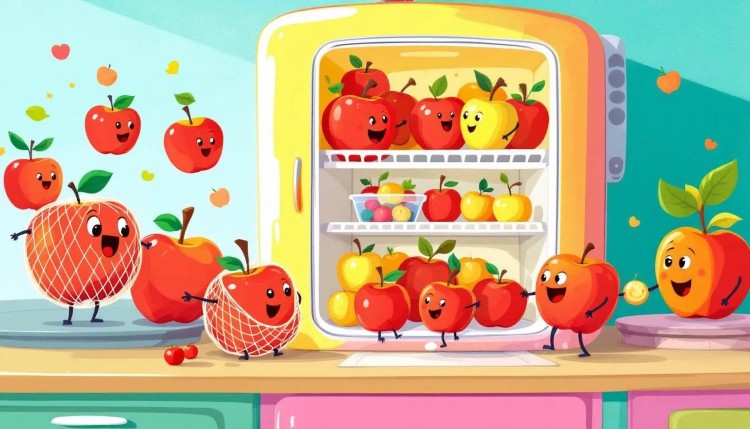
To store apples properly and keep them crisp, the crisper drawer of your refrigerator is the best place. This drawer is designed to maintain a higher humidity level, which is perfect for storing apples and ensuring they stay fresh. Using a brown paper bag in the crisper drawer adds a layer of protection. This can help keep your apples fresh even longer.
Loose apples in the crisper drawer can last up to six weeks while maintaining decent quality. If you prefer using plastic produce bags, leave them open to help preserve the texture and flavor of the apples. Another effective method is wrapping each apple individually in newspaper. This allows them to release ethylene gas without affecting each other, resulting in optimal freshness. Additionally, storing them in a cool place can help extend their life for up to a week.
Avoid letting apples touch each other to reduce the spread of damage. This prevents one bad apple from spoiling the bunch. Using these storage tips will help you properly store apples and enjoy their fresh taste for a longer period.
Choosing the Right Apple Varieties
Choosing the right different apple varieties is crucial for maximizing freshness during long-term storage in the fridge. Varieties that are excellent choices due to their thick skins and firm textures include:
- Granny Smith
- Honeycrisp
- Braeburn
- Rome
These apples are less likely to bruise and rot compared to softer varieties.
Soft apple varieties like Golden Delicious and Cortland are not suitable for long-term storage because they tend to bruise easily and rot. If you’re looking for lesser-known varieties that store well, consider Arkansas Black and Northern Spy. These apples also have the durability needed for extended storage.
By selecting the right varieties, you can ensure your apples stay fresh and delicious for weeks. This knowledge allows you to make informed choices whether you’re buying apples for immediate consumption or looking for long-term storage options.
Handling and Inspecting Apples
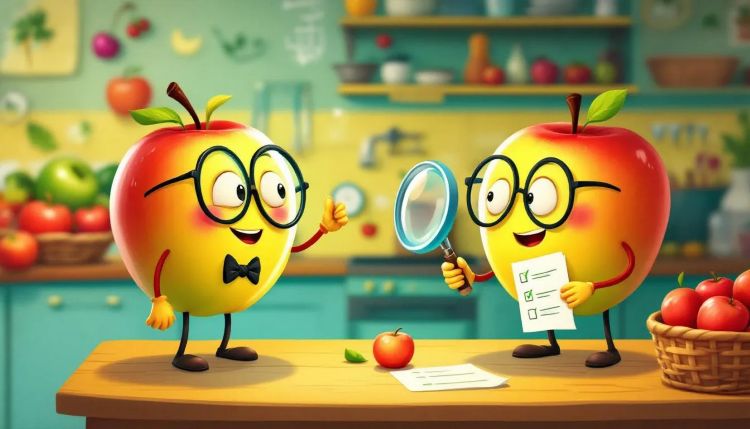
Proper handling and regular inspection of apples are essential for maintaining their freshness. Be careful when handling apples while picking them. This will help to avoid any damage. Before storing, make sure the apples are free of bruises or soft spots as these can lead to faster spoilage.
During storage, it’s important to:
- Inspect your apples regularly for any signs of bruising, cuts, or soft spots.
- Ensure that any damaged apples do not affect the others.
- Maintain the quality of your stored properly apples by removing any that are starting to spoil.
Remember, one bad apple can spoil the whole apples bunch, so it’s crucial to remove bad apples and any bruised ones nearby promptly for extra protection. These expert tips will help you keep your apples fresh and safe to eat.
Preventing Browning of Cut Apples

Nothing ruins the appeal of apple slices more than unsightly browning. Fortunately, there are several effective methods to prevent this. Soaking sliced apples in a mixture of lemon juice and water is a reliable method to keep them fresh and inhibit oxidation. This simple solution can make a big difference in maintaining the appearance of your apple slices.
Another effective technique is to submerge apple slices in a mixture of salt and water for about five minutes. This can prevent browning for up to twelve hours without altering the taste. If you prefer a natural solution, a mixture of honey and water can also keep cut apples from browning while maintaining their freshness for twelve hours without leaving a strong residual taste.
For a quick and easy method, simply storing cut apples submerged in plain water can delay browning for several hours. Alternatively, soaking apple slices in lemon-lime soda can prolong their freshness due to its citric acid content. These methods ensure that your apple slices remain appealing and tasty for longer.
Can You Freeze Apples?
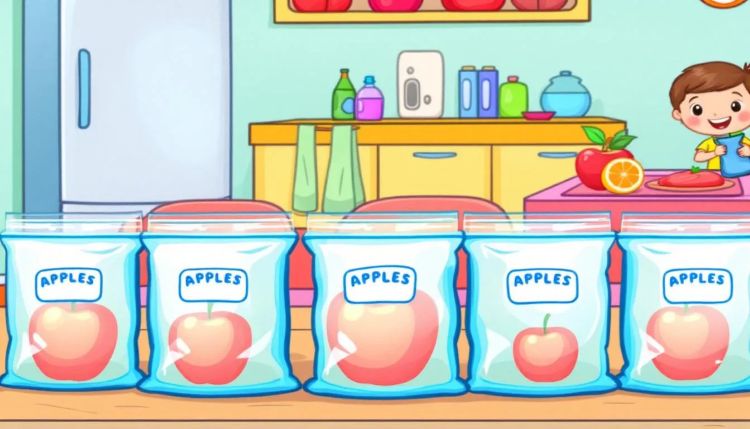
Yes, you can freeze apples! Freezing apples allows them to maintain their flavor and texture, making them suitable for baking and cooking. There are various methods to freeze apples, including syrup pack, sugar pack, or dry pack methods. Each method has its benefits, ensuring that you can always have apples on hand for your culinary needs.
Before freezing apples, follow these steps:
- Wash the apples.
- Peel the apples.
- Cut the apples into appropriate sizes.
- Blanch the apples before vacuum sealing to enhance preservation.
Freezing helps keep frozen apples fresh and tasty for months, allowing you to cook apple pie and applesauce anytime during apple season with fresh fruit and pies year round.
Using vacuum sealers like FoodSaver® can efficiently store frozen apple slices in freezer bags, maintaining their quality for extended periods. By properly preparing and freezing apples, you can enjoy their fresh taste no matter the season.
Using Vacuum Sealing for Extended Freshness
Vacuum sealing is an effective method to extend the freshness of apples. This technique removes air, which helps in slowing down the ripening process of apples. Apples stored using vacuum sealing can last up to five times longer in the fridge compared to regular storage methods.
When vacuum-sealed, apples maintain their texture and flavor better than when stored in airtight containers. This best storage method is particularly useful for those who want to maximize refrigerator space and ensure their apples stay fresh for as long as possible. The storage method of vacuum sealing helps in achieving this goal.
Storing Apples with Other Produce
When storing apples with other produce, keep the following in mind:
- Apples produce ethylene gas.
- Ethylene gas can hasten the ripening and spoilage of nearby fruits and vegetables.
- To prevent faster ripening and spoilage, keep apples away from other fruits and vegetables.
Keeping damaged apples isolated from healthy ones helps to avoid accelerating spoilage. Regularly monitor apples and keep them separate from other produce to maintain freshness. By following these storage tips, you can ensure that your apples and other produce stay fresh longer.
Signs of Spoiled Apples
Identifying signs of spoiled apples is crucial for maintaining food safety. Signs include:
- A sour or fermented smell, which is a strong indicator that an apple has spoiled.
- Soft or mushy textures, indicating the apple is often past its prime.
- Visible mold, which can appear as fuzzy spots and suggests that the apple should not be consumed.
Dark spots or discoloration on the skin may indicate decay beneath the surface. If you find spoiled apples, discard them immediately to prevent them from spoiling other apples and causing them to spoil faster. Recognizing these signs helps you maintain the quality of your stored apples and ensures that you only consume fresh, safe fruit.
Final Thoughts
Proper storage techniques can significantly extend the shelf life of your apples. By choosing the right varieties, handling them carefully, and employing effective storage methods like refrigeration and vacuum sealing, you can enjoy fresh apples all year round.
Remember, keeping apples separate from other produce and regularly inspecting them for signs of spoilage are key to maintaining their freshness. Apply these tips, and you’ll never have to worry about spoiled apples again.
Frequently Asked Questions
How long do apples last in the fridge?
**Apples can last up to six weeks in the fridge if they’re sorted and free of bruises.** Keep them in good condition to enjoy longer freshness!
What is the best way to store apples in the fridge?
To keep your apples fresh and crisp, store them in the crisper drawer of your fridge, either loosely or in a paper bag. This simple method ensures they maintain their delicious texture!
Can you freeze apples?
**Absolutely, you can freeze apples!** Use methods such as syrup pack, sugar pack, or dry pack to maintain their flavor and texture for months.
How can I prevent cut apples from browning?
**Prevent cut apples from browning by soaking them in a mixture of lemon juice and water, saltwater, or honey and water.** This simple trick keeps your apples fresh and appealing!
What are the signs of spoiled apples?
**Spoiled apples have a sour smell, soft texture, visible mold, and dark spots on the skin.** Check your apples regularly to avoid these signs!
You may also like:
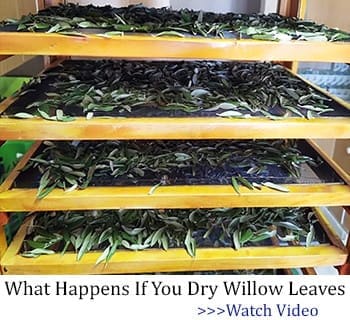 Can You Freeze Eggs? What Every Homesteader Should Know
Can You Freeze Eggs? What Every Homesteader Should Know
An Insanely Effective Way to Build a 5 Year Food Stockpile (Video)
How Long Do Potatoes Last in the Fridge Cooked?

